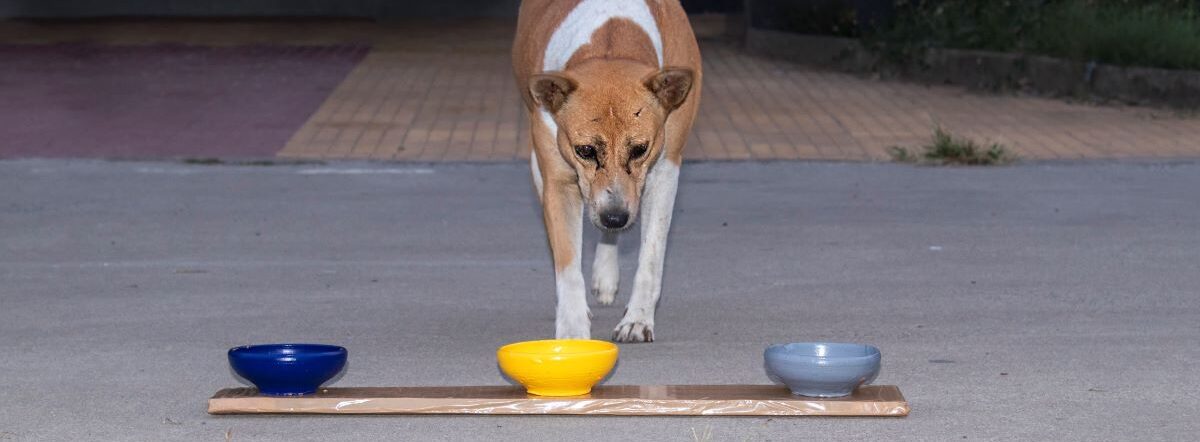Learning How Dogs Respond to Color
Help fund exploratory research to better understand our canine companions’ preferences for color in this international collaboration!
Project Description
Dog-lovers are often curious about the preferences of their four-legged buddies, especially which things they love the most. However, we seldom pay attention to their preferences regarding colors. Contrary to popular belief, dogs do actually see colors! Indeed, they mostly see the world in different shades of blue, yellow, and gray.
Help fund exploratory research to better understand our canine companion’s color preferences in this unique collaboration between UBC and the Indian Institute of Science Education and Research (IISER) Kolkata. Working with companion dogs in Canada and free-ranging (“street”) dogs in India, this project will kickstart a rare international partnership.
Our project sets out to investigate, for the first time ever, how the colors of objects affect decision making in dogs. We aim to find out whether dogs have a favorite color, whether this preference varies dog-to-dog, and how it may impact their decision to approach an object. Results from our project will provide us with novel findings regarding dogs’ color preferences.
This knowledge will be immensely helpful to dog guardians and researchers to guide us in making the world of dogs a more enriching space, as we could provide dogs with objects such as toys, puzzles or mats in their preferred colors. Moreover, this knowledge will positively impact research as well, leading us to design better studies by taking these preferences into account.
This collaboration between UBC and IISER Kolkata will deepen our knowledge about the preferences of different populations of dogs, increasing the relevance and generalizability of our findings. Researchers from the Animal Welfare Program will assess pet dogs at the Human-Animal Interaction Lab at UBC, while researchers at IISER Kolkata will set out to examine free-ranging (“street”) dogs from India.
P.S. Dogs worldwide will love to participate in this task, as they will get tasty treats for choosing between different colored objects!
Challenges and Impact of Your Support
Grants for animal behavior research are far less than the demand, and novel exploratory work is often overlooked in favor of goal-oriented research. Lack of funds makes research especially challenging when extensive fieldwork is required, such as studies with free ranging dogs.
Your support will help us open a new path of research in dog behavior, while providing financial support for budding researchers at IISER Kolkata.
We hope to raise $4,000 CAD that will go towards:
-
- Experimental equipment purchase
- Stipend for one research assistant and one intern doing fieldwork in India over 5 months
- Local travel costs for fieldwork in India
About the Project
Dr Alexandra Protopopova, assistant professor at UBC, is the NSERC/BC SPCA Industrial Research Chair in Animal Welfare and head of the Human-Animal Interaction Lab. Her research focuses on dog personality, emotional responses and learning abilities. She aims to improve animal shelter practices, improve companion animal welfare through the development of behavioural interventions in shelters as well as pet homes, and assess and improve the well-being of working dogs working in assistance roles. You can find more about the lab here!
Dr Anindita Bhadra, associate professor at IISER Kolkata, has been following the lives of free-ranging dogs on the streets of India. Her lab has looked into different aspects of social structures, adaptations, and cognition of these common but fascinating animals. Alongside scientific interests, the lab aims to figure out the most humane ways of reducing human-street dog conflicts. You can find more about the lab here!
